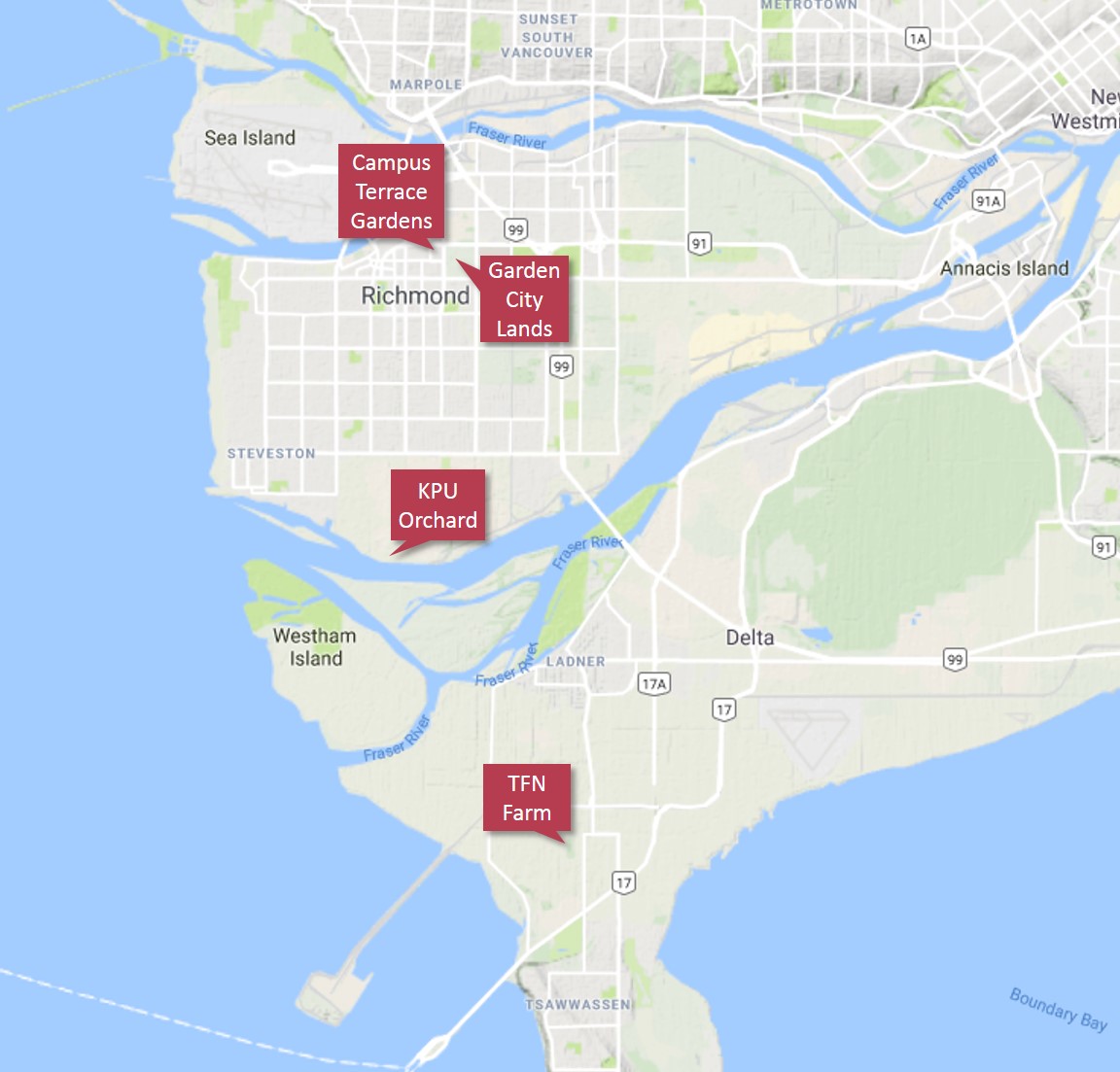

Sustainable Agriculture and Food Systems students work on several teaching and research farms.
Teaching and Research Farms
KPU Farm at the Garden City Lands
The Garden City Lands are 55 hectares (136 acres) of municipally-owned land in the Agricultural Land Reserve, just 200 meters east of KPU's Richmond campus. KPU's Department of Sustainable Agriculture and Food Systems leases eight hectares (20 acres) of the site for a Teaching and Research Farm. The farm highlights diversified, sustainable, regenerative, and organic production practices adjacent to the population centre of downtown Richmond. Students study and practice at the farm while working toward their Bachelor of Applied Science in Sustainable Agriculture.
Interesting aspects of the farm include:
- 3.3 ha (8 acres) of organic farmland;
- A solar-heated dome greenhouse;
- Three moveable high tunnels;
- Beetle banks for beneficial insect habitat; and
- An innovative approach to carbon-negative farming at the edge of an ancient peat bog.
Organic produce from the farm is sold at the Kwantlen Street Farmers Market and through KPU's campus cafeterias. Food is also donated to the Richmond Food Bank.

KPU Orchard
The KPU Orchard is a 3.3 hectare (8 acre) farm at the south end of Gilbert Road, on the South Arm of the Fraser River. The site includes certified organic teaching and research land used for fruit and vegetable production by students in the Richmond Farm School, and by students completing their Bachelor of Applied Science in Sustainable Agriculture. It is also home to KPU's Richmond incubator farms, where program graduates can trial their farm business plans while mentoring each other.
Campus Terrace Gardens
The Richmond campus terrace gardens offer an accessible, high-visibility, growing space. Students working toward their Bachelor of Applied Science in Sustainable Agriculture use the garden to grow high-value crops suited to small-scale production, including lettuce, spinach, and other salad greens. The garden's well-drained soils and warm micro-climate allow production of cool-season crops through much of the fall and spring semesters.
TFN Farm
KPU's TFN Farm School is located on an eight-hectare (20 acre) farm owned by the Tsawwassen First Nation. The certified organic land produces a wide array of student-grown fruit, vegetable, and animal products. It is also home to incubator farms, where program graduates can trial their farm business plans while mentoring each other. The TFN Farm School prioritizes indigenous applicants.
Farm | Area (ha) | Soil type |
|---|---|---|
| Garden City Lands | 8 | Sandy clay loam layered over peat |
| KPU Orchard | 3.3 | Shallow muck over Ladner silt loam |
| Campus Terrace Gardens | 0.04 | Sand |
| TFN Farm | 8 | Ladner silty clay loam |